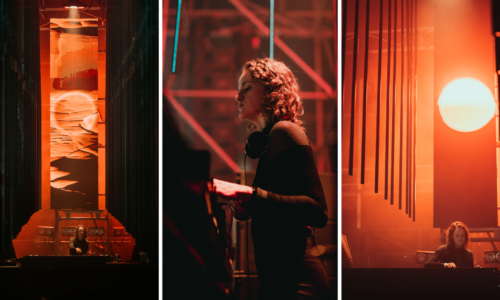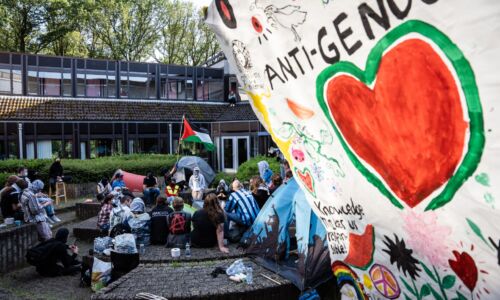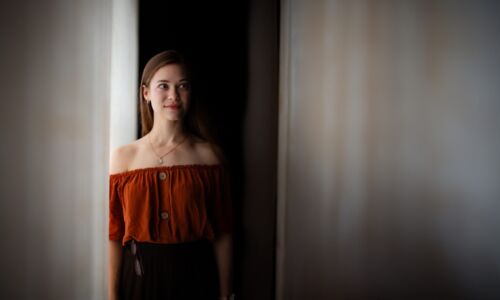Summer interview (1): Back to Leuvenheim with Ap Dijksterhuis
-
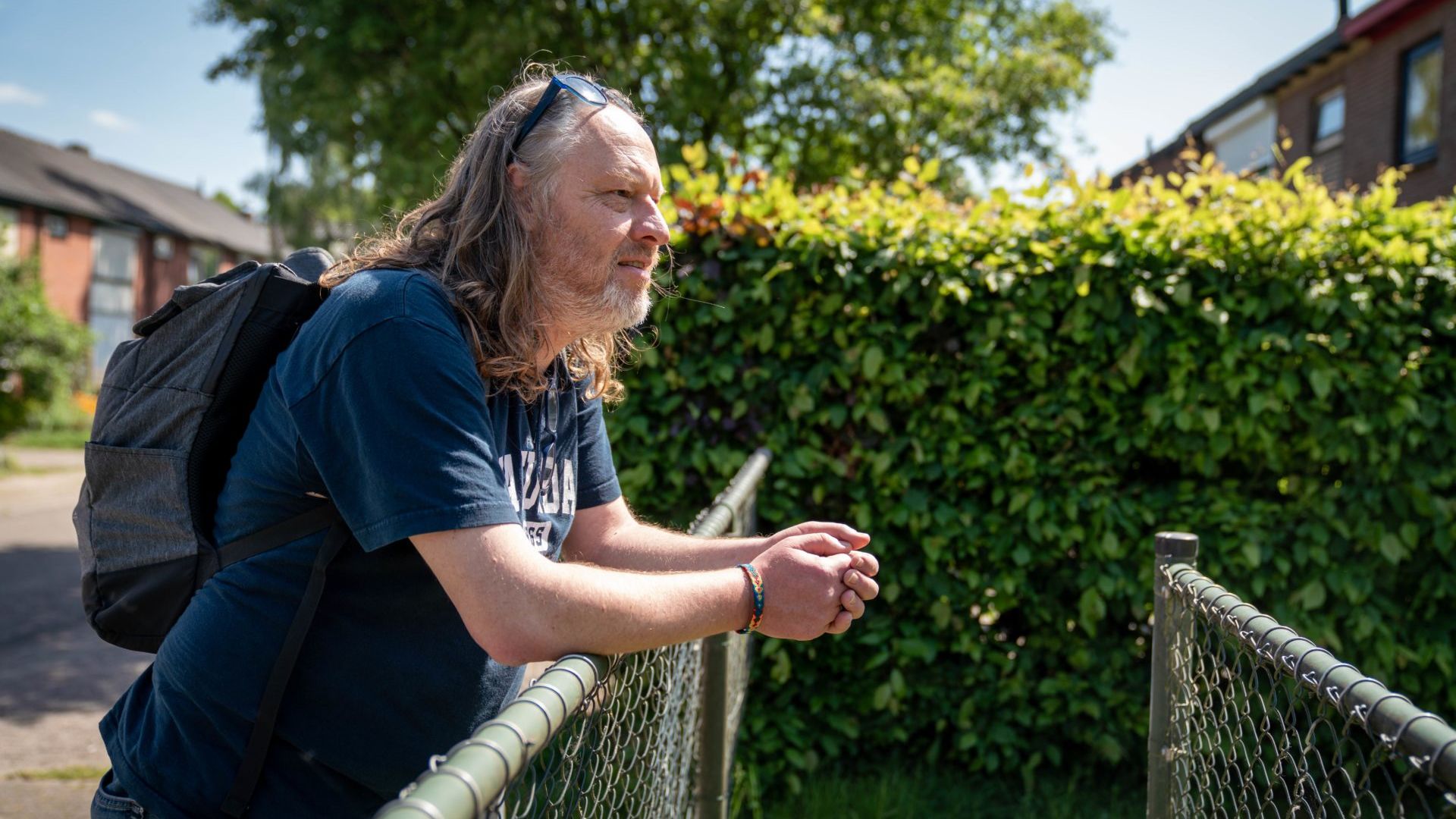 Photo: Erik van 't Hullenaar
Photo: Erik van 't Hullenaar
The debut novel by professor Ap Dijksterhuis is set in Leuvenheim in the 1980s. In this sleepy little town, he experienced several firsts — his first love and first joint — but something darker was unfolding at the same time. ‘I am still uncomfortable walking past the house I grew up in.’
Just five streets make up the village where Ap Dijksterhuis (1968) grew up in the 1980s, which serves as the backdrop for his debut novel Bart.
The story is set in 1982. The adolescent characters listen to music by The Cure, The Ramones, and The Clash, and they read Goethe, Lucebert, and Raymond Carver. Other than that, they do what most teenagers do: dream, fall in love, and smoke joints in the yard of the local primary school.
In the book, we follow the 15-year old Bart, who has just moved to the village, through the eyes of Len, two years his senior. The boys become friends, listen to music together, dig a bunker, and lead a carefree life until Bart loses himself in love.
Savannah behaviour
Professor Dijksterhuis, known as social psychologist, speaker, and author of popular science books, wrote Bart primarily in the early hours of the morning. ‘It took a while before I had the self-confidence and the know-how to start a novel,’ he says as we walk through the village, flanked by the floodplains of the IJssel to the east and by woods and a castle on the other side.
‘There is nothing to hold on to. While I was writing, I sometimes had the idea I was sitting on a horse blindfolded, not knowing where I would end up. Bart’s setting is autobiographical, but the characters are largely fictitious.’
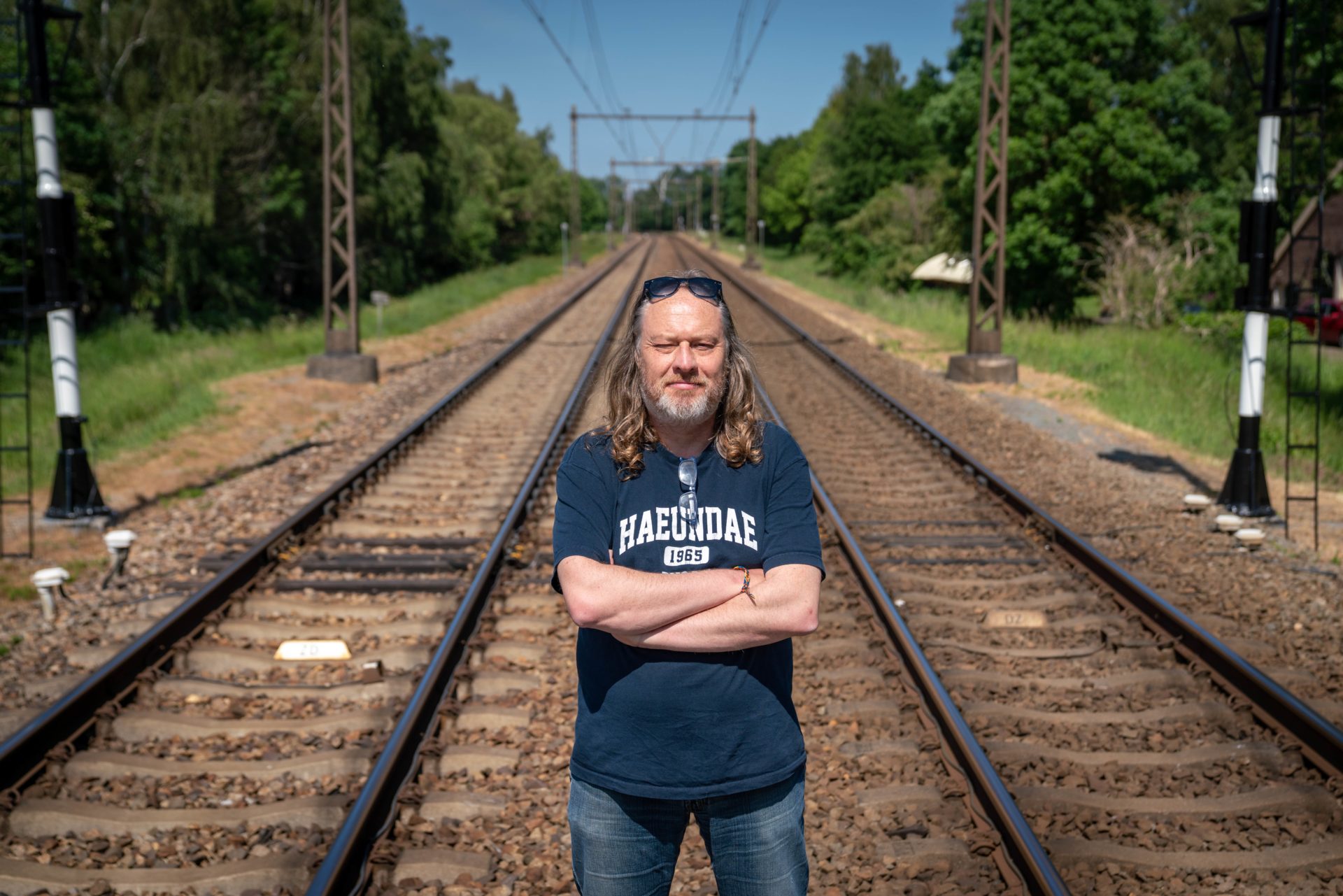
‘What makes Leuvenheim unique is difficult to describe,’ says Dijksterhuis. ‘It is not really part of the Achterhoek, but it doesn’t share the strict Christian family values of the Veluwe either. It is a small village that is politically just left of centre, with about 600 to 700 inhabitants: most people know each other. Hardly any new houses have been built after all these years.’
This shaggy-haired, bearded psychologist was here in January to check a few things for his novel, but he had barely visited Leuvenheim in the past 20 years. ‘I left the village when I was 18, but my mother lived here until she died in 2000. I don’t have any brothers, sisters, or a father.’
Leuvenheim is called ‘our sleepy town’ in the book. Inhabitants suffer from ‘savannah behaviour’: when one family has discovered something new, other families immediately copy it.
‘That was my experience. Suddenly everyone started to eat mackerel, or play Risk, or all families had a utility room built. There were only two channels on the television, so it was logical that you’d do something together in the evening. That is a clear memory: people were really involved in each other’s lives.’
The door was always open?
(nods) ‘You would always use the backdoor to enter people’s homes.’
The narrator perceives a contrast between people who have lived in the village a long time, and the ‘outsiders’.
‘In our time, it was 50/50, and it is probably still like that. One half of the families had lived in Leuvenheim for the past five generations, spoke the dialect, and drove around on mopeds, while the rest spoke Dutch and drove in cars. It is a little exaggerated, but it is largely true.’
What side were you on?
‘My mother was originally from Zeist, but had lived in different locations in the west. Most outsiders came from farther away — some even from Amsterdam. Many people viewed Leuvenheim as a quiet, safe, and attractive place to live. Because of the major road, travelling to Arnhem, Zutphen, or Apeldoorn for work didn’t take very long.’
Did you write this book with an audience in mind?
‘When I started writing, Grand Hotel Europa by Ilja Leonard Pfeijffer and Otmars Zonen by Peter Buwalda had just been published: massive books with lots of plotlines. I vowed to be sensible, and to start with a small book: a single story without any diversions.’
‘A common complaint is that young people no longer read. I also see that in my son who is studying psychology in Nijmegen: an intelligent boy, but he reads less than we used to. My book was supposed to connect to the world of 15- to 17-year olds. You can read it in two to three hours, the duration of a film.’
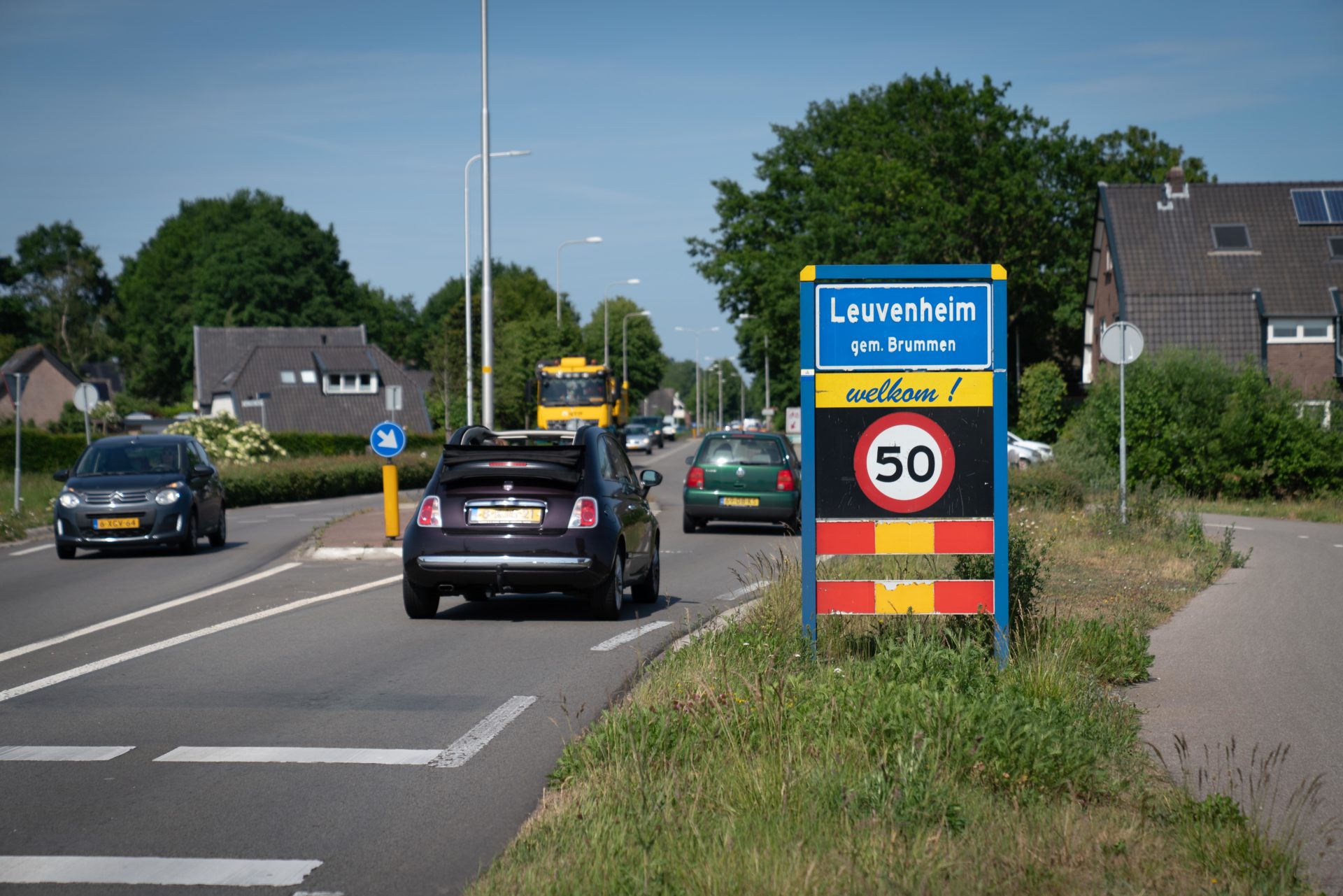
How would you describe the friendship between Bart and Len, the main characters in the book?
‘Being the smart boys in the village, they depend on each other. That is very important for Len in particular. He is woken from a state of slumber by Bart: a boy who comes to live beside him, and who appeals to his imagination because he is very intelligent and fearless.’
Have you ever met anyone who had that effect on you?
‘In a milder form: someone who lights a fire under you and gets you ready to take on new things again. But not in the village. If only.’ (laughs)
To describe his infatuation, Bart recites from The Sorrows of Young Werther by Goethe. ‘I shall see her today! (…) And then I have no further wish to form. All, all is included in that one thought.’
‘Those few times that I was in love at an early age, I thought it was an overwhelming experience. It was fun and scary, but you never know how that type of thing is for others. I always thought that it was completely confusing me. That is also what happens to Bart in the book. He knows that he is in love, but he can’t really do much about it. That is often the case for people who have a passionate nature. Infatuation can influence your life enormously.’
Are adolescents affected worse by this than adults?
‘As an adolescent, you’re magnifying things. And in the book this involves someone who takes this to the extreme. In my case, infatuations could really confuse me.’
‘I was known as a smart kid, but I was also very difficult at school: I was often sent out of the room. I was restless and had severe attention disorder, but diagnoses like ADD and ADHD did not exist at the time. I also had Goethe’s hopeless romantic side, but I wasn’t someone who was automatically followed by others.’
Many people know you as the happiness professor. Were you happy here?
‘I was reasonably happy. Puberty wasn’t always easy, but whose puberty was? This is a very nice and safe environment until you’re at least 14. We were fairly poor, but I lacked nothing. I also have fond memories of the secondary school in Zutphen, and the gigs by TC Matic and other bands at the open youth centre in Brummen. But I kept failing my final exams. And when you’re 18, you really have to leave here. It took too long in my case.’
Did you already know you’d be leaving for the big city back then?
‘There’s nothing wrong with Leuvenheim. But everyone who attends VWO (pre-university education) in Zutphen knows they’ll be leaving for Nijmegen, Utrecht, or Amsterdam after secondary school. I chose Nijmegen because I was in love with a girl who lived there.’
Tin box
In a quiet street, away from the busy road that splits the village in two, we walk past Dijksterhuis’ childhood home. A sign in the front garden states: ‘Sold’. ‘We’ve just missed our chance’, he says with subtle irony. When the photographer asks him to pose, he prefers to do it in a different location.
‘I am still uncomfortable walking past that house. The garden looks different: the hedge is a lot higher than before. It gives me a strange feeling.’
Why is that?
‘Maybe because it has changed so much. And because I associate it so strongly with my own youth and my mother. I get the feeling that something is wrong. It is almost like trespassing.’
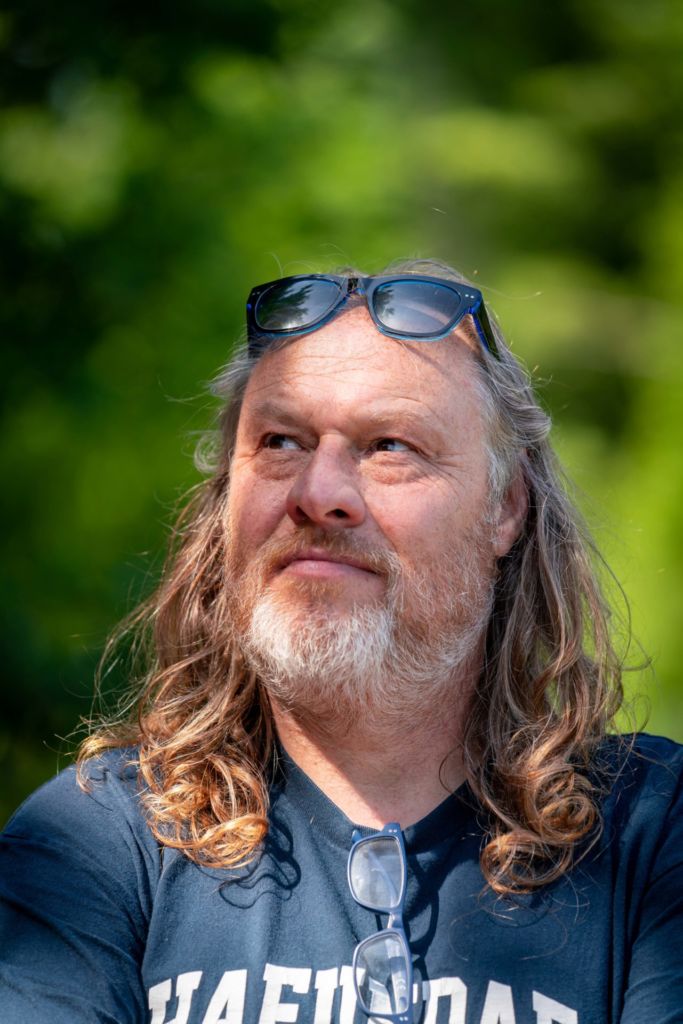
You said ‘I do not have a father’ at the start of the interview.
‘It is a little complicated. I do not know who my biological father is. The man who I consider to be my father, and whose surname I have, died when I was three. Only when I was about twelve did my mother tell me that he was not my real father.’
Have you ever tried to find your biological father?
‘For a long time I thought: that’s the way it is. It only changed after my mother died. But now it is no longer easy to find him, and I’m still not sure if I want to. It is a somewhat mysterious history; I think about it sometimes.’
‘It doesn’t change who I am: that was my stance for a long time. My mother told me once that my biological father knows that I’m here. I thought it was his responsibility to do something with that, especially after I had my own son. But he must have his reasons for not doing so.’
‘I found a tin box with photos and other things belonging to my mother in the cellar the other day. When I went through them, I came across things that may be clues.’
(Hesitates a moment) ‘The man that I consider my father, didn’t just die either. He was murdered.’
That’s rough.
‘Yes, it is a strange story. He was a homosexual, and that was why he was no longer married to my mother. He had brought a man home with him who then stabbed him to death with a knife. What happened between the two is unclear. That man panicked, and my father didn’t survive.’
What effect did that have on you?
‘I was three years old, and I didn’t really understand. I stayed with my grandmother and grandfather a lot at that time, because my mother was devastated of course. Although they no longer lived together, they had a good relationship.’
‘Recently I took my time reading through all the court proceedings. If I had done it in two days, I would have been a wreck. You need to do this kind of thing slowly.’
Good material for a writer though.
‘It is. But I noticed that it was taxing. While I was reading the reports, I suffered with stress and physical reactions. That’s when I started on a new novel, and the first version is as good as finished now. It only deals with love, perhaps as a reaction to all that suffering. But there may be a book in there for another day.’
Whisky
We walk across the floodplains towards the IJssel. When the water between the summer and the winter dike slowly receded years back, Dijksterhuis and five friends saved hundreds of fish from certain death — afterwards they were received by the mayor for their act of bravery.
In addition to being a scientist, Dijksterhuis is known as writer of popular science books. He sold over 100,000 copies of Het Slimme Onbewuste (the smart subconscious), about why thinking often does not help when making decisions. During the coronavirus pandemic, when it appeared that foreign travel may be out of the question this year, Dijksterhuis suddenly had to give interviews about Wegwee (longing for the road), a travel book that is set in 13 countries and which contains the idea that travel makes you happy. He also wrote books about money, happiness, wine, and whisky.
Dijksterhuis has also founded many enterprises. These days, he is mainly busy with Happiness Lab, which helps companies grow in a responsible manner, centred around the wellbeing and happiness of employees. ‘Until now, we have not really been impacted by the pandemic too much’, he says with a certain amount of pride.
Research, writing, speaking, entrepreneurship: what do you want to focus on in the next few years?
‘I love writing the most, together with entrepreneurship. I do not have many ambitious left in the academic field.’
Do you want to remain connected to Radboud University until you retire?
‘Perhaps with an extremely minor appointment, but I don’t think so. Science is really wonderful, but I’m kind of done with the university as an institute. For people with a large need for freedom and autonomy, it is not an ideal working environment.
What is your issue with the university?
‘Many procedures were added for both education and research, all sorts of accountability matters. They are largely superfluous in my opinion. There used to be more space for creativity. I still enjoy reading scientific articles, thinking about books, and laying all the knowledge out in front of me, but I do not want to engage in that research myself.’
Is there not enough appreciation at the university for what you do?
‘I’m not really interested in that. It is true that there isn’t an awful lot of appreciation at the university for the books I write, but the colleagues have always been friendly.’
Is it related to the crisis in social psychology?
‘Well, it’s not that bad. We took a pretty nasty blow from the fraud committed by Diederik Stapel ten years ago, but we’re a reasonably successful field. However, what happens is that we are often outsmarted by behavioural economists and communication scientists who get awarded grants for ideas we had 15 years ago.’
‘In the nineties, popular science books were looked down on, but that hasn’t been the case for a long time. In times of valorisation, people see that it is important. But it is not really relevant what colleagues think of it. The books should be appreciated by the people who buy them.’
Balance bike
The trip down memory lane is nearly at its end. Dijksterhuis takes us to the schoolyard in Leuvenheim. ‘We often gathered here: first to play football, later to smoke weed: priorities changed through the years.’ (laughs)
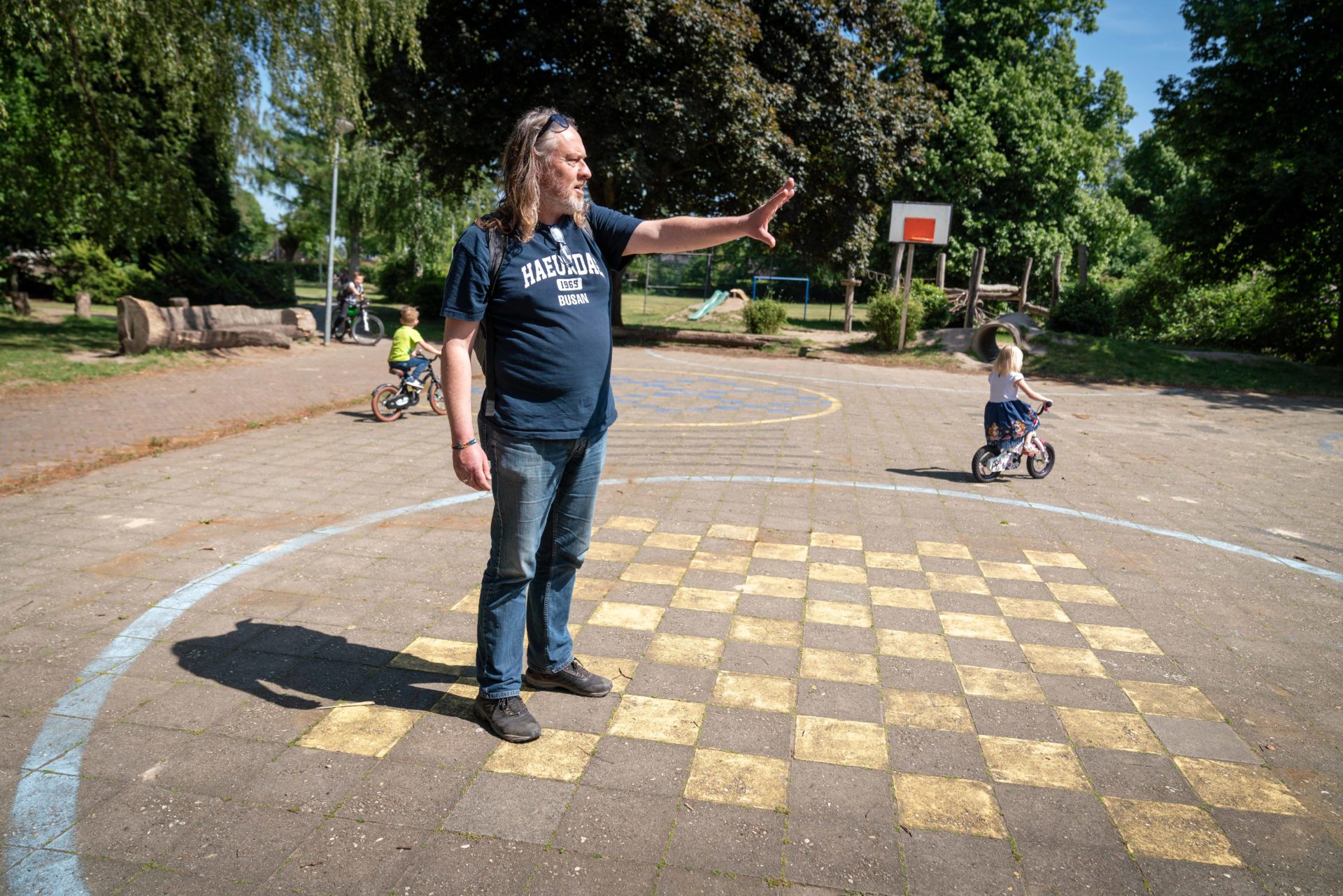
When he poses for a photograph for the final time, a woman approaches. ‘I don’t want to bother you gentlemen’, she calls out, ‘but because of the coronavirus pandemic you need to stand behind the red tape.’ In her wake, a few inquisitive pre-schoolers on balance bikes wonder what the stranger is doing on their schoolyard.
‘I went to school here 40 years ago,’ Dijksterhuis says to them. ‘Bye!’
Did you feel at home in Leuvenheim this afternoon, or more of an outsider?
‘Strangely enough, both. I feel at home because I have all sorts of nostalgic feelings. But when I see the people here, I feel like an outsider. That’s not surprising: everyone knows each other in a village like this. If they don’t know you, you’re not part of it.’
Bart by Ap Dijksterhuis will be published by Prometheus, 144 pages, €16.99.
